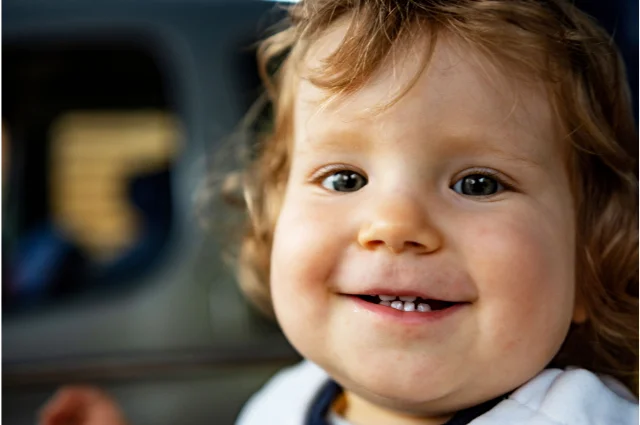Kids make different types of sounds as they grow. At some point, they start to babble, and next, you will expect them to start talking. Babbling is an essential part of speech development. It is a sign that your child is learning to communicate with their voice. However, if your 2-year-old is not talking but is babbling, they may still be developing their language skills.
Hey! By the way… any links on this page that lead to products on Amazon are affiliate links and I earn a commission if you make a purchase. Thanks in advance – I really appreciate it! .
Is it normal for a 2-year-old to still babble?
Yes, it is normal for a 2-year-old to babble still. Babbling allows toddlers to communicate their thoughts and actions to parents and others. It is also the beginning of learning how to talk correctly. Though a 2-year-old may babble, they can say a few words here and there. For example, they may be able to call the parents using the words “daddy” and “mummy” or “dad” and “mom.” Some two-year-old kids may also be able to pronounce the name of their pets. With time the babbling reduces while they increase the number of words they can clearly speak.
Causes of speech delay in 2-year-old?
Speech can be delayed in a 2-year-old for several reasons.
- It could result from developmental disorders such as autism, cerebral palsy, and Down syndrome. All these can cause a child to delay in speaking fluently.
- Neurological disorders like traumatic brain injuries or epilepsy is another cause of speech delay in two-year-olds. These affect the brain, causing a malfunction in the part responsible for speech development.
- Hearing loss is yet another cause of speech delay in children, as they will not be encouraged to voice out words when they have difficulty hearing them.
- Some children are born with physical impairments such as cleft palate. Others experience difficulty controlling their muscles, especially in the mouth area. All these can cause delays in speech development.
- 2-year-olds with limited exposure to their parents’ language for whatever reason are also likely to experience speech development delays.
- Kids with cognitive delays are most likely to have delayed speech, even as 2-year-olds.
- Emotional problems are other causes of speech delay. These can be anxiety or depression. Such emotions create an imbalance affecting their speech development and causing delays.
When should I be concerned if my 2-year-old isn’t talking?
Children develop at different rates. At two years old, some may be almost fluent in speaking, but others may still babble. Nevertheless, a two-year-old should be able to speak at least fifty words clearly, irrespective of their developmental rate. While it is pretty standard for some two-year-olds to include babbles in their speaking, it is somewhat abnormal if they cannot speak. That could be a sign of an underlying ailment. If that is the case with your 2-year-old, you should see a pediatrician immediately to have them examine your child and diagnose them more thoroughly.
At what age do late talkers talk?
Late talkers are kids with slower speech development than other kids. That doesn’t suggest that they are medically ill. They will eventually talk, as well as the early talkers. Most late talkers begin to speak at two or three years old. Some others may delay a little further.
5 activities for a speech-delayed child
1. Play Games
An excellent way to help a 2-year-old not talking but babbling is to engage them in playing games constantly. Games have a way of assisting them in communicating their intentions and actions to others. Try to engage them in those games that help them practice listening and responding to verbal cues. Such games include Charades, Simon Says, and I Spy.
2. Picture Exchange Communication System (PECS)
The PECS is a graphical communication system. It can help kids with speech delays learn how to communicate. The PECS makes use of pictures and illustrations to symbolize words and phrases. Kids with speech delays can then exchange these illustrations with others to communicate with them.
3. Sign Language
You can encourage a child with delayed speech development to learn Sign language. With it, they can communicate better with those around them. You can use it as a primary form of communication or as a supplement to verbal communication.
4. Repetition
You can significantly improve the vocabulary of a child having delayed speech by constantly repeating words and phrases to their hearing. By doing that, you will help them recognize the repeated words and phrases and also begin to use them in their conversations with other people.
5. Visual Aids
You can get as many visual aids as possible to help if your 2-year-old is not talking but babbling. Visual aids like videos, flashcards, and images can help them communicate better. They can also learn new words and phrases from using them. Just be sure to call out the name of the object shown on the aids while using them.
Conclusion
You must provide your child with a language-rich environment to help them develop their language skills. In addition to the activities discussed above, also try to sing songs, talk, and read books to them often, as it can help them learn new words. If you have any concerns about the language development of your 2-year-old not talking but babbling, you should speak to your pediatrician.


